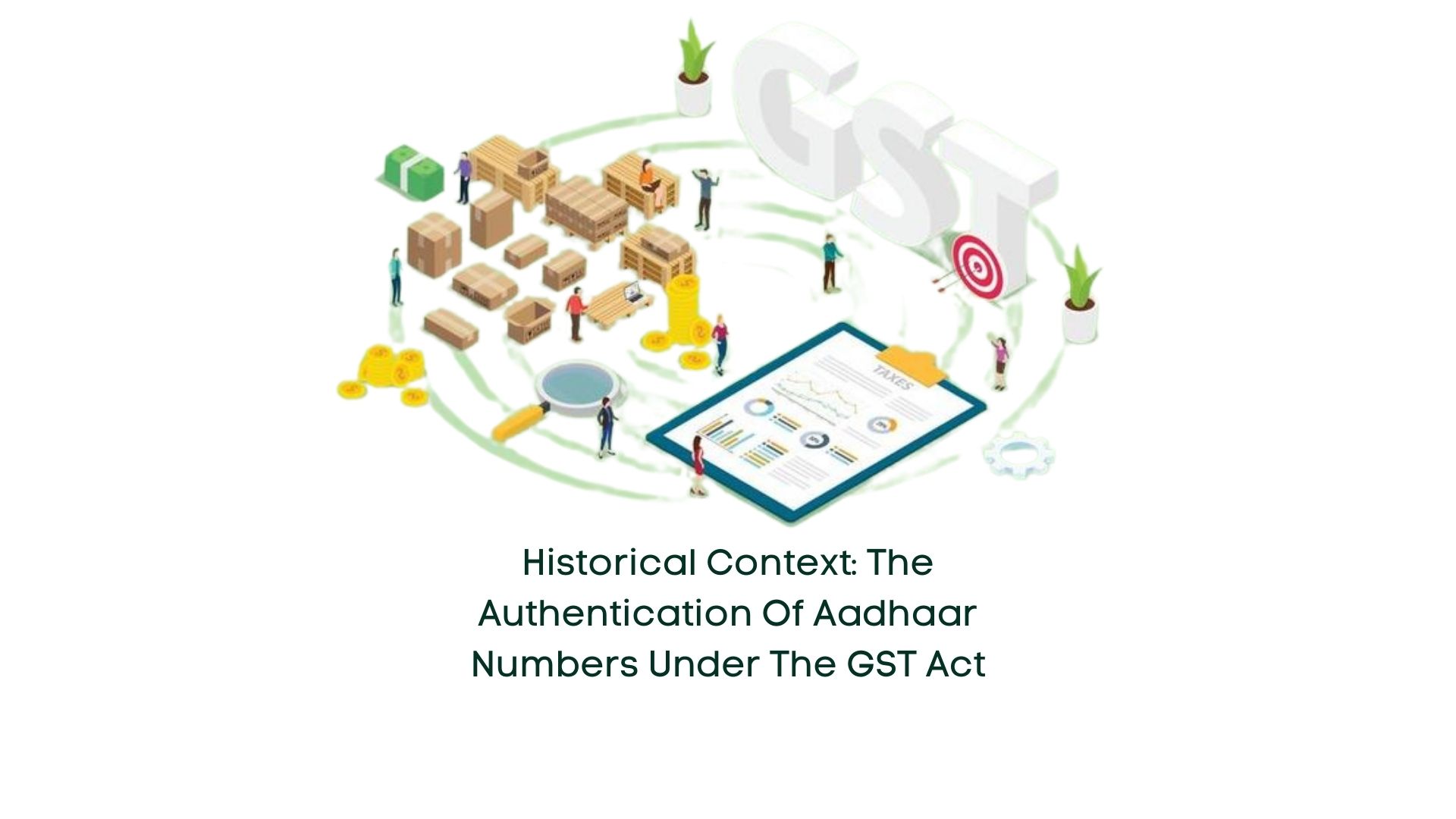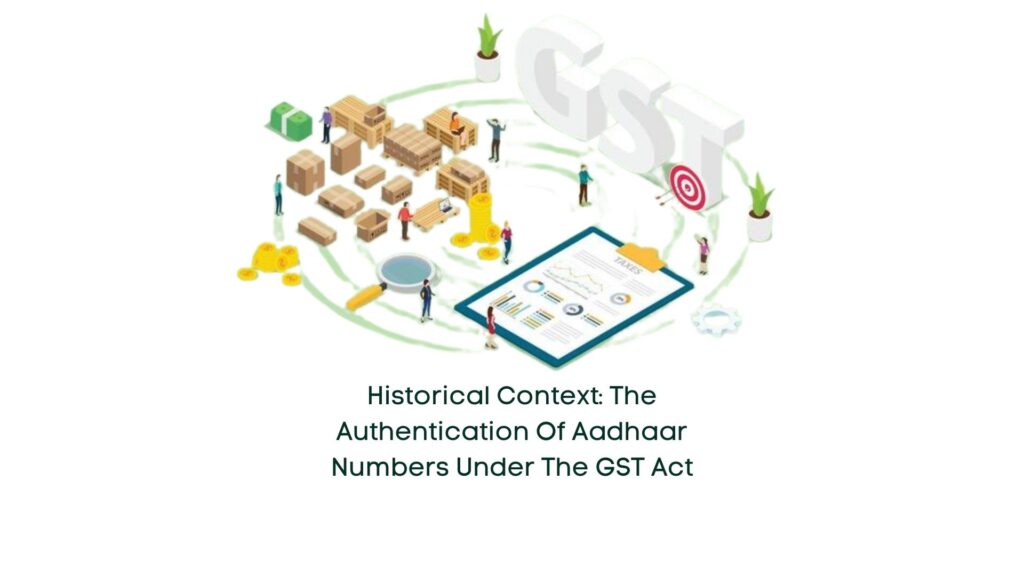
29 Feb Historical Context: The Authentication of Aadhaar Numbers under the GST Act

During the timeline leading up to April 1st, 2020, the Central Board of Indirect Tax and Customs (CBIC) issued a notification concerning the mandatory Aadhaar authentication for GST registration.
An amendment to this notification, identified as 62/2020 dated August 20th, 2020, made Aadhaar authentication optional. Specifically, individuals exempted from this requirement included non-residents, non-Indian citizens, and those already registered under GST.
Aadhaar authentication, a process validating an individual’s identity through submission of Aadhaar number and biometric data to the Central Identities Data Repository (CIDR), aimed to facilitate online identity validation and prevent malpractices under the Goods and Services Tax law.
Under GST registration, applicants were given the choice to opt for Aadhaar authentication, unless exempted by the Central government or mandated by section 25(6C) of the CGST Act.
From August 21st, 2020, applicants could decide whether to undergo Aadhaar authentication, whereas between April 1st, 2020, and August 20th, 2020, it was compulsory for registration application submission.
Applicants opting for Aadhaar authentication had to provide their Aadhaar numbers with their GST registration application and subsequently verify them on the GST portal through an OTP sent to their linked mobile number and email ID.
In cases involving entities like companies, LLPs, or trusts, only the primary authorized signatory’s Aadhaar authentication sufficed.
Failure to undergo Aadhaar authentication, whether opted for or not, necessitated physical verification by a GST officer of the principal place of business.
If Aadhaar authentication wasn’t possible due to lack of allocation, alternative identification methods were made available as per CGST Rules.
Aadhaar authentication was mandatory for specific individuals under section 25(6C) of the CGST Act, including authorized signatories, managing partners, and Karta of a Hindu Undivided Family.
Exceptions were made for individuals not citizens of India or those not falling into specified categories.
A notable development occurred with the amendment of Rule 8(4A) of the CGST Rules via Notification No.27/2022 on December 27th, 2022. This introduced biometric-based Aadhaar authentication, piloted in Gujarat, alongside risk-based physical verification based on portal data and risk analysis.
The implementation of risk-based biometric Aadhaar authentication in Gujarat was formally notified through CGST notification 05/2023.


No Comments